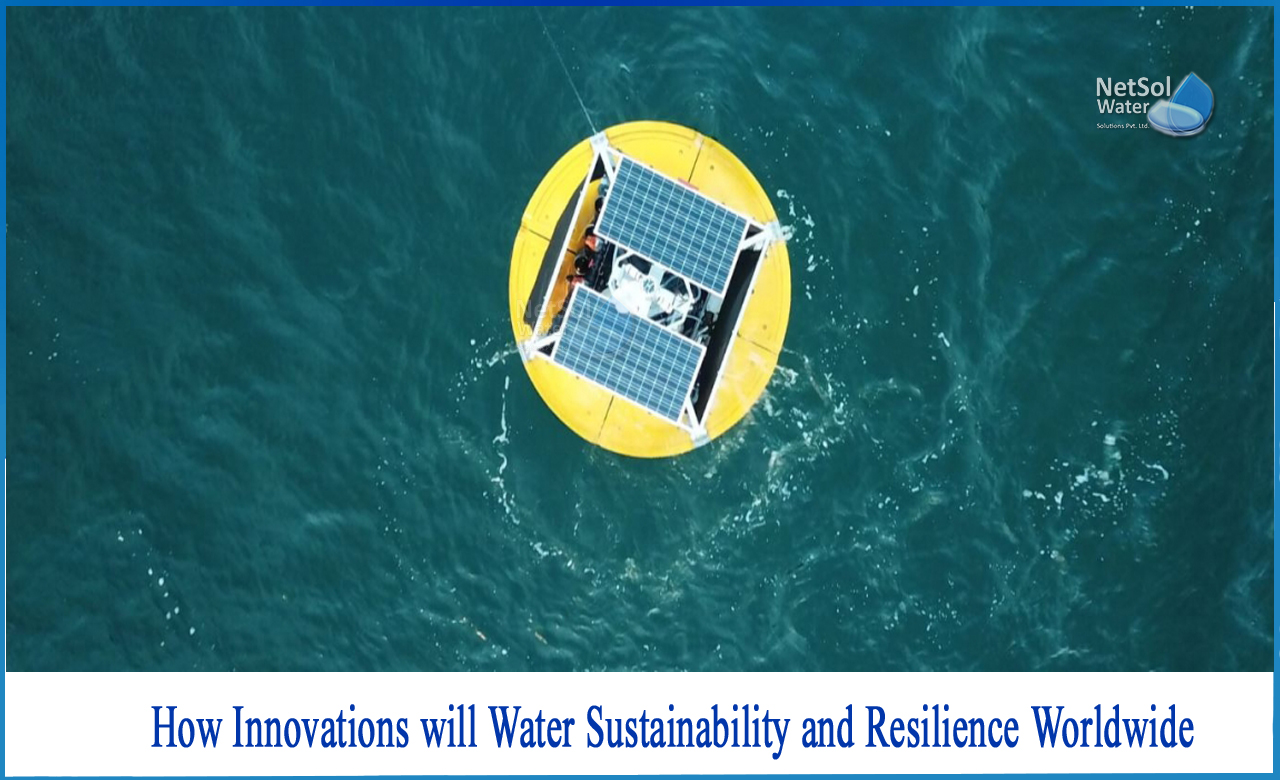How innovations will Water Sustainability and resilience in the world?
As the world's population will approach 9.7 billion by 2050, it has never been more critical to create more with less. As the water supply and sanitation sector continues to face rising challenges, particularly from the effects of climate change, developing-world Governments will need to strengthen the sector's resilience and sustainability. Scarcity and safety, water efficiency, utility operations, monitoring and treatment, and data and analytics all rely on innovation and technology.
Global entrepreneurs are witnessing a greater willingness by utilities and businesses to test and adopt promising technologies: remote sensing of water, which can aid in water accounting, non-revenue water remediation, and much more; the internet of things, which enables smart irrigation and water quality control, and which, when combined with new computing capacity, enables us to develop complex models for water management. Collaboration with firms that provide the most recent technology breakthroughs in the area can aid in the advancement of such endeavours.
The Future of water
Smarter Homes, for example, makes the WaterOn gadget, which is a smart metering and automatic leakage prevention system. So far, the gadget has been utilized on apartment complexes in India, saving 40,000 families, an average of 35% of their water use. Meanwhile, its usage in Bengaluru saves around 71 million litres of water every month.
Water On systems, for example, will be especially useful in assisting Governments in meeting SDG 6 - guaranteeing the "availability and sustainable management of water and sanitation for everyone."
This is when firms like Wonderkid might come in handy.Wonderkid provides a mobile management platform to utilities, allowing them to improve their customer support and invoicing capabilities. It combines data insights to enhance infrastructure investment planning with regulatory monitoring to ensure that citizens' service delivery expectations are met. The technology has been deployed by over twenty utilities in Sub-Saharan Africa, providing 500,000 customers with safer and more dependable services.
Water sustainability is related to agriculture!
The ability to put food on the table is one such basic requirement for every human. This frequently necessitates an abundance of crops, which might be imperilled by droughts and other negative effects of climate change. Such effects can be reduced if farmers can optimize and improve agricultural production.
Ignitia is a firm that combines machine learning and remote sensing to send text messages with hyper-local climate and weather forecasts to small-scale farmers. The firm has over one million customers in Ghana and other West African nations, and its technology has benefited farmers, which may then be passed on to consumers.
Oneka is another firm that assists people in obtaining clean drinking water without the need of land or the emission of greenhouse gases.
Conclusion
These types of technologies and innovations can be implemented effectively in the developing world with the help and collaboration of stakeholders such as local governments and utility operators, as well as international organizations such as the World Bank. While efficient implementation and delivery will take time, it is the first of many crucial steps toward broad water sector sustainability and resilience.
Netsol Water is Greater Noida-based leading water & wastewater treatment plant manufacturer. We are industry's most demanding company based on client review and work quality. We are known as best commercial RO plant manufacturers, industrial RO plant manufacturer, sewage treatment plant manufacturer, Water Softener Plant Manufacturers and effluent treatment plant manufacturers. Apart from this 24x7 customer support is our USP. Call on +91-9650608473, or write us at enquiry@netsolwater.com for any support, inquiry or product-purchase related query.



